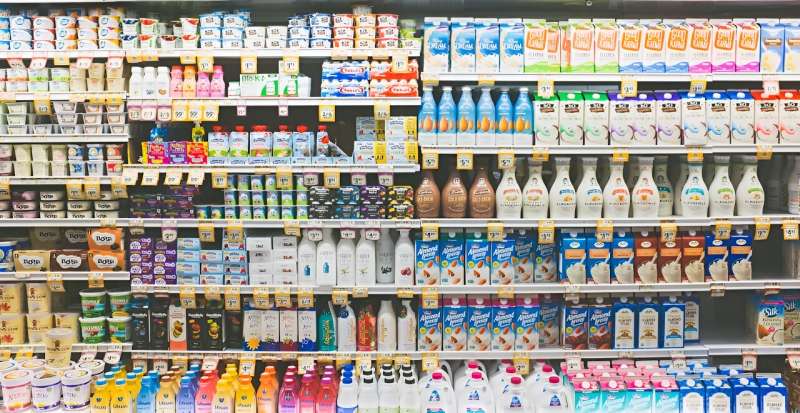This article has been reviewed according to Science X's editorial process and policies. Editors have highlighted the following attributes while ensuring the content's credibility:
fact-checked
trusted source
proofread
Meat and dairy alternatives should be clearly labeled to help consumers make healthy choices, says study

Consumers need clearer information about the nutritional content and processing of meat and dairy alternatives when they are buying food, according to a new study.
Overall, the research from the London School of Hygiene & Tropical Medicine (LSHTM) found that plant-based alternatives are more environmentally friendly than animal-based products, and can be healthier.
Their findings, published in Nutrition Reviews, suggest they could be a useful stepping stone in the shift toward more sustainable diets if people have the right information to choose carefully.
In recent years, there has been a rise in novel food and drink designed to mimic or replace animal products such as alternatives to burgers or mince. Their nutritional and environmental value can vary depending on the main ingredients and level of processing.
The researchers carried out the first comprehensive review to investigate the environmental and health impacts of these products.
A total of 57 seven peer-reviewed studies and 36 gray literature sources met the criteria of the review, evaluating products available in high-income countries including the U.K. It excluded tofu, tempeh and seitan as these have been part of traditional Asian diets for centuries and evidence already shows they are a healthy alternative.
According to the analysis, plant-based alternatives have substantially lower environmental impacts than animal-based products—including lower greenhouse gas emissions, use of water resources and land use.
Most meat and dairy drink alternatives also had lower energy, lower saturated fat, more fiber, and contained more legumes and vegetables, while plant-based drinks contained less total sugar than dairy milks.
On average, both meat and drink alternatives had comparable salt levels to animal-based products. However, all plant-based meat alternatives contained more sugar.
Some plant-based cheese alternatives had 50% higher saturated fat than dairy cheese.
The evidence suggests there are positive health benefits from switching to plant-based meat and dairy alternatives, but more studies are needed to confirm this. The researchers also argue that improved labeling and categorization should be implemented to inform consumers, policymakers and other key stakeholders.
Sarah Najera Espinosa, a research student at LSHTM and first author of the study, said, "Although whole foods are still considered the 'gold standard' for healthy and environmentally friendly diets, environmental and health outcomes from some novel plant-based foods are promising.
"Our review has demonstrated that some products, such as legume and vegetable-based drinks and legume- and mycoprotein-based meats, have the potential to be a useful stepping stone in the process of food system and dietary transformation if they are carefully selected."
More information: Sarah Nájera Espinosa et al, Mapping the evidence of novel plant-based foods: a systematic review of nutritional, health, and environmental impacts in high-income countries, Nutrition Reviews (2024). DOI: 10.1093/nutrit/nuae031




















